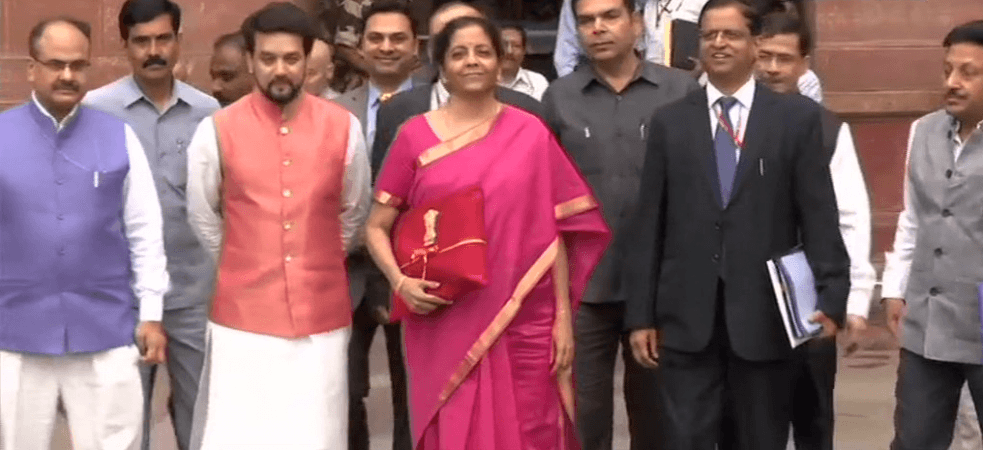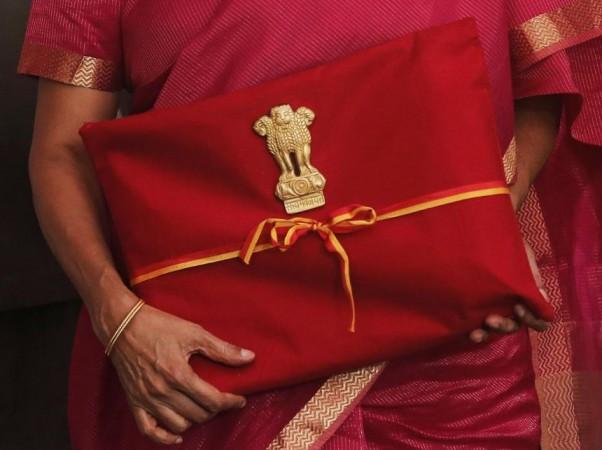
Union Budget 2019, which will be Finance Minister Nirmala Sitharaman's maiden budget set to be presented in Parliament on Friday, has triggered feverish speculations on the kind of changes she would make to the proposals in the interim budget Piyush Goyal presented in February while standing in for Arun Jaitley.
An interim budget was presented as it is customary in an election year to present a vote on account for meeting government expenses until the new Lok Sabha is convened. Now that Prime Minister Narendra Modi is back in power at the helm of the Bharatiya Janata Party (BJP)-led National Democratic Alliance (NDA) government, commentators do not expect much changes to the original outlay.
Reports say the allocations made to various ministries and departments in the interim budget will be largely retained in the first budget of Modi 2.0. "Allocations projected in the Interim Budget 2019-20, will not be altered," a finance ministry circular before the budget exercises began. The note added that Sitharaman may consider only extra allocations towards "unavoidable commitments" for which funds had not been allocated in February.
There were some significant announcements in the interim budget, according to a report in the Economic Times. Among them were an income support programme for farmers and a new pension scheme for workers. The budget also proposed tax relief for the lower middle class by raising the income-tax threshold. Critics raised the doubt if the vote on account went beyond its customary brief with an eye on the imminent Lok Sabha elections at the cost of the country's ballooning fiscal deficit.
Amid criticism that the government failed to meet its own revenue deficit target for the financial year 2018-19, the interim budget raised the target to 3.4 per cent from 3.3 per cent. The new budget may not lower the target to 3.4 as the sweeping spending proposals leave little headroom for restoring the earlier limit. While the oil prices have largely remained benign under $60 a barrel helping the check the deficit, the government may find it difficult to keep it within even the raised limit if the Middle East tensions keep the oil boiling beyond $65.
Sitharaman will be forced to retain the allocation made in the interim budget for fear of exposing the government to opposition criticism. The biggest proposal in the interim budget was the huge spending plan for the farmers in the form of Rs 75,0000-crore farm income support scheme. The plan is to give farmers estimated at about 12-crore people owning less than two hectares of land Rs 6,000 a year.
Small and marginal farmers are expected to benefit. However, the government may have to heed criticism that the scheme benefits only the land-owning farmers and not the vast number of farm labour. If the government's objective in doling out cash to farmers was to revive the rural economy, it needs to take the rural labourers that form the majority of the workforce into account. The government, however, is unlikely to bear the extra burden by announcing a scheme that includes then farm labour.

A full tax rebate on salaries up to Rs 5 lakh per annum, making it possible for people earning up to Rs 6.5 lakh to keep out of the tax net through right investments, targeted the middle-class votes. There is little the government could do to expand these benefits because of the burgeoning revenue deficit. Goyal had said the proposals could benefit as many as 3-crore middle-class taxpayers.
The 'mega' pension scheme announced for the informal sector workers earning less than Rs 15,000 a month will have to be retained. There is unlikely to be changed to expand its scope for fear of the runaway government expenditure.
The full budget may contain something more than the steps in the interim proposals for realty sector which is reeling under the lingering effects of currency demonetisation during the first stint of Prime Minister Modi. The cut in goods and services tax (GST) for affordable housing and income-tax exemption on the notional value of a second house have fallen short in stimulating the sector. Housing prices have remained suppressed because of low demand. Sitharaman may have some surprises for the sector, according to industry observers.

















